As loving pet parents, we constantly strive to provide the best care for our furry family members, and that includes their diet. While it’s tempting to share a bite of our meals with our eager pups, many human foods, including certain types of meat and common household staples, can be incredibly harmful, even deadly, to dogs. Understanding What Meat Dogs Should Not Eat and other dangerous ingredients is crucial for safeguarding your dog’s health. This guide will delve into specific foods to avoid, explain the risks they pose, and offer vital advice for preventing accidental ingestion and handling emergencies.
Understanding Why Some Meats Are Harmful to Dogs
While dogs are natural carnivores and meat forms a cornerstone of their diet, not all meat is created equal when it comes to canine consumption. The preparation, fat content, and presence of bones or seasonings can turn a seemingly harmless treat into a serious health hazard. Knowing what meat dogs should not eat involves understanding these critical distinctions.
Raw or Undercooked Meats
Feeding your dog raw or undercooked meat, poultry, or fish might seem natural, but it carries significant risks. Raw meats can harbor harmful bacteria like Salmonella, E. coli, and Listeria, which can cause severe gastrointestinal issues in dogs, including vomiting, diarrhea, and abdominal pain. These bacteria can also be transmitted to humans, posing a public health risk. Similarly, raw fish can contain parasites that, if consumed, can lead to “fish disease” or “salmon poisoning,” a potentially fatal condition if untreated. Always ensure any meat given to your dog is thoroughly cooked to eliminate these pathogens.
Fatty Trimmings and Processed Meats
High-fat meats, such as bacon grease, fatty trimmings from steak, sausages, hot dogs, and other processed meats, are extremely dangerous for dogs. While delicious to us, their rich fat content can lead to pancreatitis, a painful and potentially life-threatening inflammation of the pancreas. Symptoms of pancreatitis include severe abdominal pain, vomiting, diarrhea, loss of appetite, and lethargy. Some breeds, like Miniature Schnauzers and Yorkshire Terriers, are particularly predisposed to this condition. Processed meats also often contain high levels of sodium and artificial additives that are not suitable for canine digestion and can lead to sodium ion poisoning, kidney issues, and other health problems.
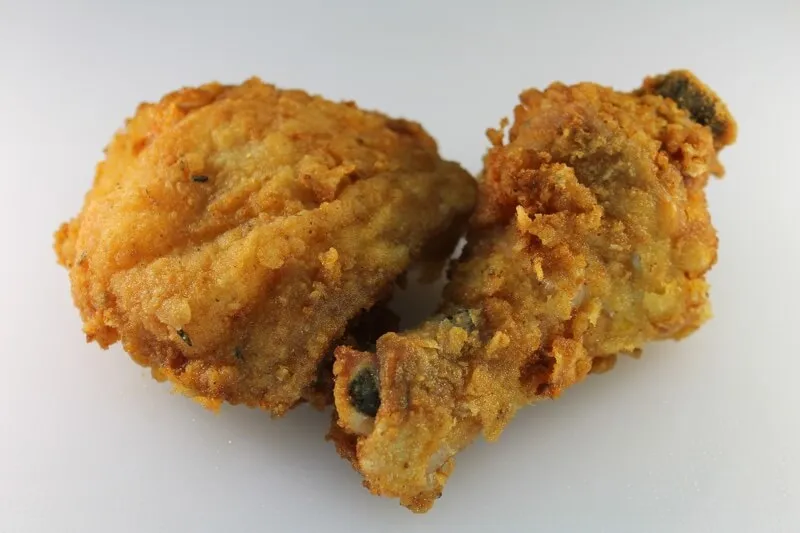 Dog looking longingly at fatty bacon on a plate, highlighting the dangers of high-fat foods for pets
Dog looking longingly at fatty bacon on a plate, highlighting the dangers of high-fat foods for pets
Cooked Bones
Never give your dog cooked bones. While raw bones can sometimes be safe (under strict veterinary guidance and supervision), cooked bones become brittle and can splinter easily. These sharp fragments can cause serious damage, including choking, cuts in the mouth and esophagus, intestinal blockages, and even punctures of the stomach or intestines. These injuries often require emergency surgery and can be fatal. If you want to provide your dog with something to chew on, opt for safe, vet-approved chew toys or specially designed dental chews instead.
Spiced or Seasoned Meats
Many human-prepared meats are seasoned with spices, herbs, and other ingredients that are toxic to dogs. Onion and garlic powder are common culprits, and as we’ll discuss further, onions and garlic are highly dangerous for dogs, damaging their red blood cells. Excessive salt, chili powder, and other strong spices can also cause severe digestive upset, dehydration, and sodium poisoning. When preparing meat for your dog, always cook it plain, without any seasonings, and ensure it’s lean.
If you’re wondering what foods are safe for dogs or looking for safe human foods for dogs to supplement their diet, consult your veterinarian or reliable pet nutrition resources.
Other Common Human Foods Dogs Must Avoid
Beyond certain meats, a wide array of human foods present significant health risks to dogs. Many of these are common household items that pet owners might not immediately identify as dangerous. It’s crucial to be aware of these hidden threats to ensure your dog’s safety.
Chocolate
Perhaps the most well-known forbidden food, chocolate contains caffeine and theobromine, stimulants that dogs metabolize much slower than humans. These substances can cause a rapid heart rate, dangerously high blood pressure, tremors, seizures, and in severe cases, even death. The darker the chocolate, the higher the concentration of these toxins, making baker’s chocolate and dark chocolate particularly dangerous. Smaller breeds are also more susceptible to lower doses. It’s vital to keep all chocolate products, from bars to cocoa powder, securely out of your dog’s reach.
 Dog cautiously sniffing a bar of dark chocolate, illustrating the forbidden nature of chocolate for canines
Dog cautiously sniffing a bar of dark chocolate, illustrating the forbidden nature of chocolate for canines
Xylitol (Gum, Candy, Peanut Butter)
Xylitol is an artificial sweetener commonly found in sugar-free gum, candy, mints, baked goods, certain yogurts, and even some brands of peanut butter. For dogs, xylitol is highly toxic, causing a rapid and severe drop in blood sugar (hypoglycemia), which can lead to disorientation, seizures, and liver failure. Always check ingredient labels, especially for peanut butter, before offering it to your dog. If a product contains xylitol, keep it away from your pet.
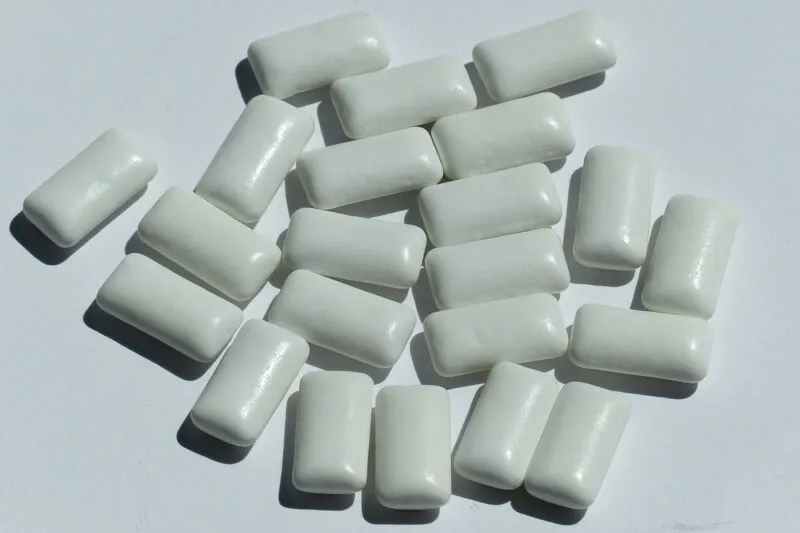 A substitute sweetener Xylitol package, next to a dog's bowl, highlighting its danger for pets
A substitute sweetener Xylitol package, next to a dog's bowl, highlighting its danger for pets
Grapes & Raisins
Grapes and their dried counterparts, raisins, are highly toxic to dogs and can cause sudden and severe kidney failure. Even a small amount can trigger a dangerous reaction, making them one of the most insidious threats. The exact toxic substance is still unknown, but the consequences are severe. Keep fresh grapes, fruit salads containing grapes, and any baked goods or trail mix with raisins completely inaccessible to your dog. For more information on fruits puppies should avoid, refer to specialized resources.
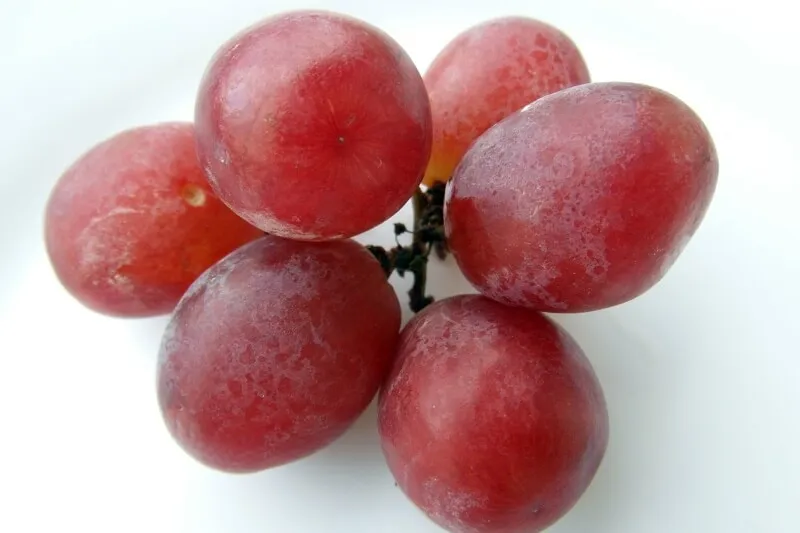 Bowl of fresh grapes on a counter, with a blurred dog in the background, symbolizing danger
Bowl of fresh grapes on a counter, with a blurred dog in the background, symbolizing danger
Macadamia Nuts
These Australian-native nuts can cause severe gastrointestinal upset, vomiting, weakness, tremors, and hyperthermia in dogs. While the exact toxic mechanism remains a mystery, the symptoms are clear and distressing. Macadamia nuts are often found in cookies and other baked treats, so be vigilant about ingredients if sharing human snacks.
Avocados
Avocados contain a fungicidal toxin called persin. While generally harmless to humans, persin can cause vomiting and diarrhea in dogs, especially if they ingest large amounts or consume the leaves or skin where concentrations are higher. Different avocado varieties can have varying levels of persin. To be safe, it’s best to keep avocados and guacamole completely out of your dog’s diet.
Onions & Garlic
Members of the Allium family, onions and garlic, are extremely harmful to dogs. They contain compounds that can damage red blood cells, leading to hemolytic anemia, a condition where red blood cells are destroyed faster than they can be produced. This can result in weakness, lethargy, rapid breathing, and even organ damage. This toxicity applies to all forms: raw, cooked, powdered, and dehydrated. Be cautious of foods seasoned with onion or garlic powder, such as many processed snacks, sauces, and gravies.
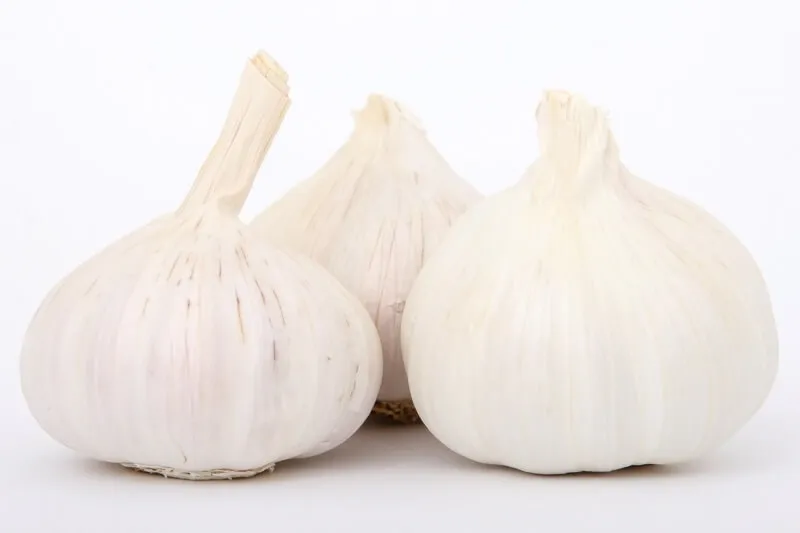 Fresh garlic cloves and a cut onion on a cutting board, illustrating harmful ingredients for dogs
Fresh garlic cloves and a cut onion on a cutting board, illustrating harmful ingredients for dogs
Salt
While dogs need a small amount of salt in their diet, excessive intake can lead to sodium ion poisoning, causing symptoms like extreme thirst, increased urination, vomiting, diarrhea, tremors, and even seizures or coma. Common sources of concern include salty snacks like potato chips, pretzels, and popcorn, as well as heavily salted gravies or processed foods. Always ensure your dog has access to fresh water, especially if they accidentally consume something salty.
Tea & Coffee (Caffeine)
Like chocolate, tea leaves and coffee beans contain caffeine, a stimulant that is toxic to dogs. Caffeine consumption can lead to hyperactivity, elevated heart rate, tremors, and potentially seizures or death. This includes brewed coffee and tea, coffee grounds (even used ones), tea bags, and caffeine-containing energy drinks. Ensure all caffeine sources are stored securely away from curious paws and noses.
Raw Yeast Dough
If you enjoy baking, be extremely careful with raw yeast dough. When ingested by a dog, the warm, moist environment of their stomach causes the yeast to ferment and produce alcohol, leading to alcohol poisoning. The dough can also expand in the stomach, causing painful gas, bloating, and in severe cases, gastric dilatation-volvulus (GDV), a life-threatening condition where the stomach twists. Keep rising dough in an inaccessible place.
Spoiled Foods
Dogs are scavengers by nature, but letting them rummage through trash or eat spoiled food is extremely dangerous. Moldy foods can contain mycotoxins, which can cause severe muscle tremors, seizures, and neurological damage. Old or rotten foods can also harbor harmful bacteria, leading to intense gastrointestinal distress, food poisoning, and other serious illnesses. Always dispose of spoiled food in a securely sealed outdoor bin.
Alcohol
Any amount of alcohol can be dangerous for dogs. Alcohol affects their central nervous system and can lead to symptoms ranging from vomiting, diarrhea, and disorientation to severe respiratory distress, coma, and even death, especially in smaller breeds. Never offer your dog alcoholic beverages, and be vigilant during parties to ensure drinks aren’t left where your dog could access them.
For a comprehensive list of human foods dogs should never have, it’s always best to stay informed and cautious. Knowing what can dogs eat from home safely is just as important as knowing what they cannot.
Which Dogs Are Most At Risk?
While any dog can accidentally ingest harmful substances, some dogs are naturally more prone to getting into trouble. Highly curious dogs, those with a tendency to mouth or chew on everything, or breeds known for their scavenging instincts may require closer supervision. Puppies, with their insatiable curiosity and undeveloped sense of discernment, are also at a higher risk. Regardless of breed, age, or personality, every dog owner bears the responsibility of dog-proofing their home and remaining vigilant about what their pet consumes. Understanding your dog’s habits and ensuring all potentially dangerous foods are stored securely is the best defense.
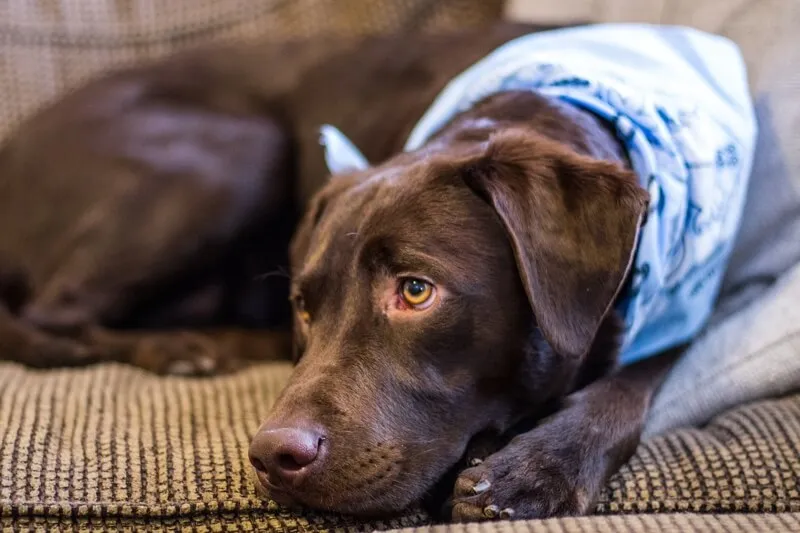 A curious dog sniffing around a kitchen floor, symbolizing the risk of accidental ingestion
A curious dog sniffing around a kitchen floor, symbolizing the risk of accidental ingestion
What to Do in a Dog Poison Emergency
Despite all precautions, accidents can happen. If you suspect your dog has ingested what meat dogs should not eat or any other toxic substance, immediate action is critical.
- Stay Calm: Panic can hinder your ability to think clearly. Take a deep breath and focus on the steps ahead.
- Contact Your Veterinarian or a Pet Poison Control Center Immediately: This is the most crucial step. Do not try to treat your dog yourself with home remedies or by inducing vomiting without professional guidance, as this can often do more harm than good. Have the following information ready:
- What your dog ate (if known).
- How much they ate (estimate if unsure).
- When they ate it.
- Your dog’s breed, age, weight, and any pre-existing health conditions.
- Any symptoms your dog is currently exhibiting.
- The ASPCA Animal Poison Control Center (APCC) is available 24/7 at 888-426-4435 (a consultation fee may apply).
- Follow Professional Advice: Your veterinarian or poison control expert will guide you on the next steps, which may include bringing your dog to an emergency clinic for diagnostic tests, induced vomiting, administration of fluids via IV, or specific medications. Hospitalization may be necessary in severe cases.
- Gather the Evidence: If possible, bring packaging, labels, or a sample of the ingested substance to the vet. This can help them quickly identify the toxin and administer the correct treatment.
Managing the costs of emergency veterinary care can be a significant concern. Pet health insurance plans can offer peace of mind by helping to cover unexpected medical bills, allowing you to focus on your dog’s recovery without added financial stress.
Conclusion
Ensuring your dog’s safety and well-being involves a vigilant approach to their diet and environment. Understanding what meat dogs should not eat, along with other toxic human foods, is paramount for every dog owner. From raw or overly fatty meats and cooked bones to common household items like chocolate, xylitol, grapes, and onions, the list of forbidden foods is extensive. Always prioritize your dog’s health by keeping these dangerous items out of reach and by opting for vet-approved dog-specific treats and foods. In case of an emergency, prompt action and professional veterinary consultation can make all the difference. Stay informed, stay cautious, and enjoy many happy, healthy years with your beloved canine companion.
